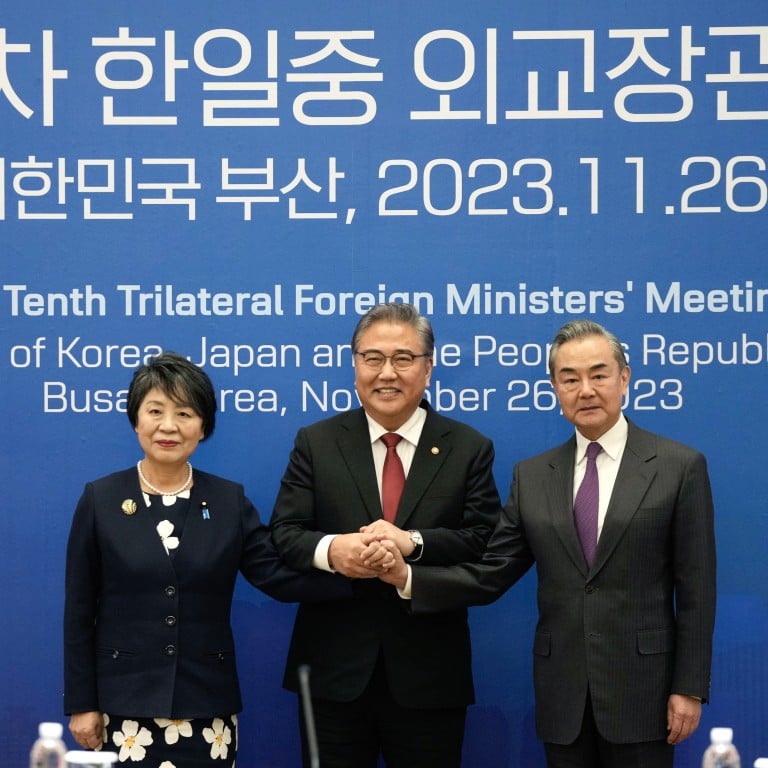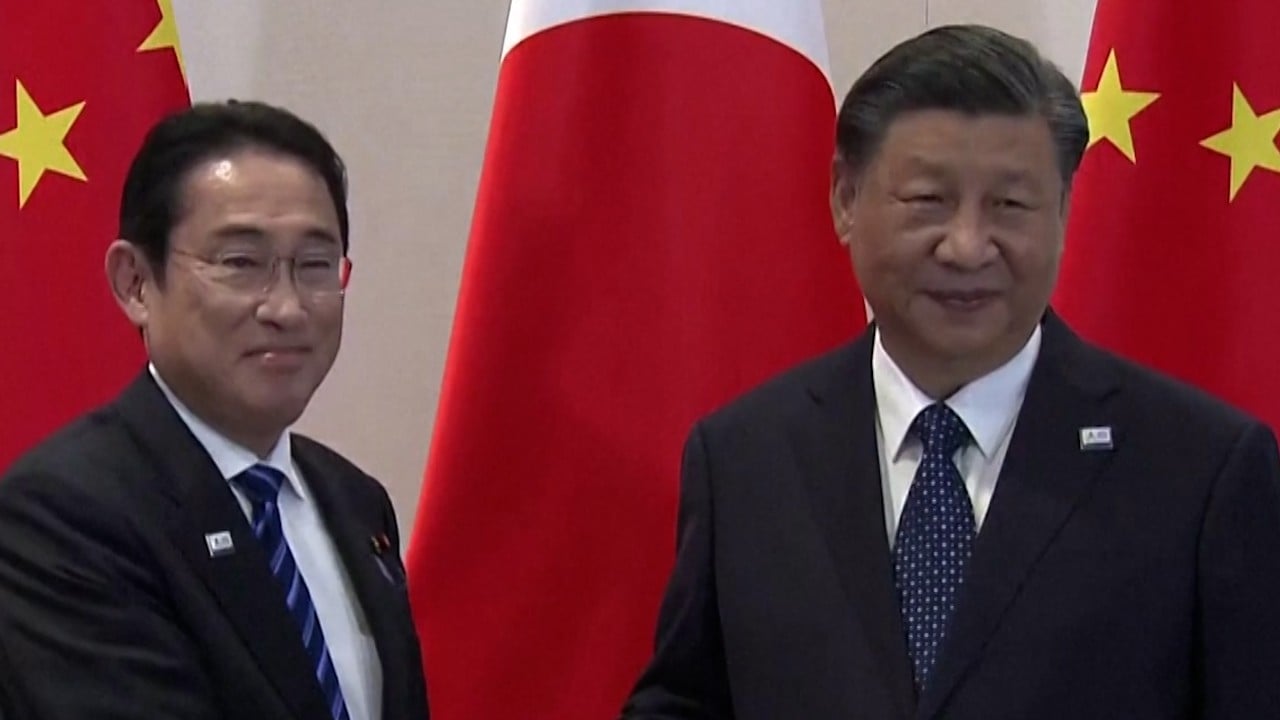
China, Japan, South Korea’s top diplomats meet, agree on leadership summit at an early date
- Meeting in South Korea’s Busan on Sunday is first in-person talks held by foreign ministers of the three countries since 2019
- Three-way meeting comes a day after Chinese and Japanese top diplomats agree to reopen bilateral strategic dialogue
The trilateral meeting in the South Korean city of Busan on Sunday was the first face-to-face talks among the countries’ foreign ministers since 2019, when Covid-19 and geopolitical tensions put interaction on hold.
As the host, South Korea’s Park Jin said after the meeting that the three ministers reaffirmed their agreement to hold the summit as soon as mutually convenient, according to Seoul-based Yonhap News Agency.
“We will continue efforts to make sure that the holding of a summit will materialise in the near future,” Park was quoted as saying.
Seoul has been working to hold the three-way summit by the end of this year or early in 2024.
Beijing has found itself in growing discord with the two Asian neighbours as Tokyo and Seoul – both US allies – have moved closer to Washington.
In a bilateral meeting on Saturday, Chinese Foreign Minister Wang Yi and his Japanese counterpart Yoko Kamikawa agreed to hold the China-Japan strategic dialogue, which has not taken place since early 2020.
They also agreed to carry out regular consultations between diplomatic authorities and bilateral security talks.
Economics tipped to top China, South Korea and Japan foreign ministers’ talks
The meeting came less than a fortnight after the leaders of the two countries reached a consensus to pursue mutually beneficial relations.
Wang said China and Japan should translate that understanding into action and put the relationship on a “healthy and correct” track, according to the Chinese foreign ministry.
“The two sides should put their strategic relationship of mutual benefit into practice and draw up a road map and timetable accordingly,” he was quoted as saying.
Chinese President Xi Jinping and Japanese Prime Minister Fumio Kishida reaffirmed their commitment to a “strategic relationship of mutual benefit” in San Francisco in mid-November, when they met on the sidelines of the Asia-Pacific Economic Cooperation summit.
The phrase was coined in 2008 but has not been used much in recent years as the two neighbours have sparred over a range of issues.
Kamikawa said on Saturday she was ready to cooperate “closely” with Wang to build “constructive and stable” bilateral relations, the Japanese foreign ministry said.
It also said the two foreign ministers had extended invitations to each other to exchange visits.
Wang called on Japan to strictly abide by the one-China principle while Kamikawa said that Tokyo’s position on Taiwan remained unchanged, according to a Chinese readout.
The Japanese ministry said Kamikawa expressed concern for peace and stability in the Taiwan Strait.
Wang said China opposed Japan’s “irresponsible action” of discharging the nuclear-contaminated water, while calling for a “comprehensive, effective and independent long-term monitoring mechanism” for all stakeholders.
North Korea halts military pact with Seoul, threatens to unleash new weapons
Wang also met Park for bilateral talks on Sunday, with the two countries confirming their commitment to advancing their “strategic cooperative partnership” which was established more than a decade ago, according to a Chinese statement.
Wang told Park that Beijing was ready to strengthen exchanges and communication with Seoul and to rule out external interference in developing the bilateral relationship.
He also again called on Seoul to work with Beijing to resist politicisation of economic and trade issues to ensure industrial and supply chains.
During their two-hour meeting, the two foreign ministers discussed a potential visit by Xi to South Korea, Yonhap reported, citing an unidentified South Korean ministry official.
Park also asked Beijing to play a “constructive” role in easing tensions on the Korean peninsula and to avoid repatriating North Korean defectors.


